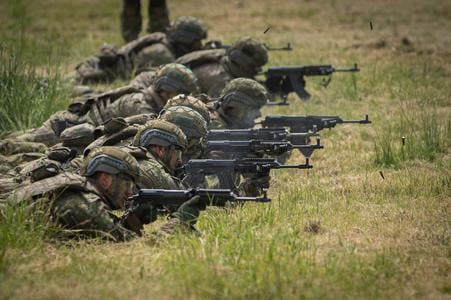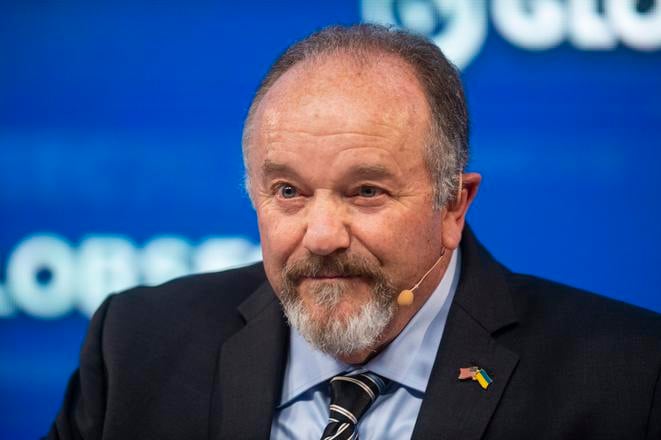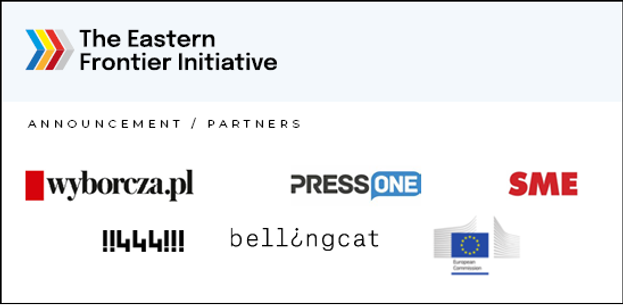He commanded NATO Allied Forces in Europe for four years. Today, he says Europe could only defend itself against an attack from the East for a limited time, that it still depends on US support, and that treating Vladimir Putin as a partner was a mistake. He says Europe must urgently strengthen its defences while there is still time. "Europe is simply not ready, and that must change," says General Philip M. Breedlove, who spoke at the Globsec 2025 Security Forum in Prague.
We used to talk about NATO member states struggling to reach 2 percent of GDP for defence. Now, there is talk of 5 percent. Was the wake-up call Russia’s attack on Ukraine — or is this about Donald Trump coming back, too?
As a man who has lived in Europe eight times, almost 17 years, I have a very European take on this.
There was a time when a lot of NATO nations didn’t really agree with or fully understand why the Baltics, Poland, Romania, and Bulgaria were so concerned. But Mr. Putin took care of that. Now, pretty much everybody understands that Putin is not a partner. He is an enemy. He never intended to be a partner. He’s been taking advantage of us for years, and he has no desire for peace. He wants to expand and bring back the Soviet way of running things in Europe.
So yes, that’s a big part of it. And though I don’t agree with how he does business, the only president since World War II who got Europe to increase its defence spending was Donald Trump. During his first administration, he pushed hard on the Wales commitment. And when he got elected, Europe realised: we have to step up.
Everybody likes to talk about Article 5. But Article 3 comes before Article 5. In my southern drawl, we say "defence begins at home." Article 3 says each nation should develop the ability to defend itself and contribute to the defence of the alliance. What are you doing to make your country ready? What are you doing to be ready to help others in the alliance? If we focus on Article 3, we are in a much better position if Article 5 ever has to happen.
Philip M. Breedlove
From 2013 to 2016, he served as the Supreme Allied Commander Europe (SACEUR) of NATO forces.
He was the commander of the US Ramstein Air Base in Germany.
He also served for a year as the Commander of US Air Forces in Europe (USAFE).
From 1991 to 1993, he served as a United Nations forces commander in South Korea.
But we are now talking about 5 percent — do you think Europe’s military capabilities have really improved, or are we still behind? Even getting to 5 percent will take time.
We had 30 years of peace dividend — in my country too, I’m pointing at the mirror here. We tried to make Putin a partner. He has shown that he’s not interested in peace. And you don’t fix 30 years of underinvestment in just a few years. That’s why the 5 percent is important. It’s 3.5 for traditional defence spending, and 1.5 for enabling things like infrastructure and support capabilities.
It’s going to be an interesting summit. I think we’ll all adopt the 5 percent. But it will take time. Some countries are still down at 1.39 percent. The key thing is that nations start taking real steps to build up their defence capabilities and capacity.
Is there a specific type of equipment Europe is missing, or have we just underestimated everything?
Everything. Look at what has happened as we’ve tried to supply Ukraine. We found out: we don’t have enough ammunition. We don’t have enough factories to build it. We don’t have enough precision missiles. Russia is doing a grinding, World War I-style war — attritional, not very smart. We in the West want to do manoeuvre warfare. Russia targets civilians. We target military and defence industry. But we’re not where we need to be to do that.
So can Europe defend itself without America? I think we’ve got a window. Russia’s army has been chewed up. Some parts have been defeated in detail. They need time to rebuild. Most people say three to five years. One expert I trust says they might do it in two. So we have this two-to-five-year window. Europe’s got to use that time to get ready.
There’s short-term readiness — what we call "fight tonight" readiness — and then there’s long-term investments: tanks, planes, ships. The long-term stuff brings jobs and votes. But short-term readiness — personnel, training, ammunition, stockpiles — that’s just as important. And it’s not sexy to parliaments. But it matters.
Let’s say Europe is attacked. Could it defend itself alone?
On the ground, in the short term — yes, Europe could face Putin. Five years from now? I don’t know. If he keeps rebuilding, adds manpower, replaces the tens of thousands of tanks and APCs he’s lost… then no, not without the US. The real problem for Europe is in high-end capabilities. The exquisite stuff — aircraft, intelligence, surveillance, reconnaissance. That’s where Europe still needs help. America always brought those to the table.
And what about politically — would Europe stand united?
If anybody tells you they know what the Trump administration is thinking, turn off your phone and put down your pencil. I don’t think they know. Europe has to be ready to do as much as possible on its own.
Russia still says NATO is threatening them and wants to return to a pre-1997 setup — with countries like Slovakia out of NATO. Is that pure propaganda?
Absolutely. Pure propaganda. NATO is never going to attack Russia. NATO is primarily a defensive alliance. Since 2008, Russia has built up its army, crossed internationally recognised borders, and invaded its neighbours. Who is doing the invading? Not NATO.
It has been over three years since the full-scale invasion. Russia’s pouring money into its military. You say we have this two-to-five-year window — do you think Putin could attack other European countries?
If anyone tells you what Putin is going to do, put your pencil down. Look at history. Four times since 2008, Russia has built up its forces, marched across borders, and invaded its neighbours. Why would they stop now? Unless we give them a reason to stop — they won’t. There’s a famous Russian saying that goes: when you press your bayonet into your enemy’s belly, if it’s soft, push harder. If it’s hard, step back and rethink. Right now, we’re soft. Putin hasn’t felt a hard belly.

Do you think he is looking for a peace agreement with Ukraine?
No. Have you read the two documents he gave us three and a half years ago? He basically said, "Sign these or else." He hasn’t changed his position. Why would he? The West is backing up.
Is it naive for us to think we can make peace with him?
I wouldn’t use the word you used — but yes, I think there’s a lot of wishful thinking.
You have said before that the war in Ukraine will end when the West decides it will. Do you still believe that?
Yes. If the West gives Ukraine what it needs to fight, Ukraine can end this war. But that’s a huge policy decision. We’ve got to make it.
Was it a mistake not to support Ukraine more at the beginning? Could that have changed how things played out?
I don’t know if it would have ended the war, but yes — we had a chance early on to change the outcome. We chose not to. And now we’ve got what we’ve got.
So what should the West be doing right now?
Keep supporting Ukraine with weapons. Russia has fired tens of thousands of missiles into Ukraine. Ukraine’s fired — what — maybe 5 percent of that number back? If Ukraine could strike Russia the way Russia strikes Ukraine — deeply and with volume — this would be a very different war.
The Eastern Frontier Initiative
This article was written in the framework of The Eastern Frontier Initiative (TEFI) project. TEFI is a collaboration of independent publishers from Central and Eastern Europe, to foster common thinking and cooperation on European security issues in the region. The project aims to promote knowledge sharing in the European press and contribute to a more resilient European democracy.
Members of the consortium are 444 (Hungary), Gazeta Wyborcza (Poland), SME (Slovakia), PressOne (Romania), and Bellingcat (The Netherlands).
The TEFI project is co-financed by the European Union. Views and opinions expressed are however those of the author(s) only and do not necessarily reflect those of the European Union or the European Education and Culture Executive Agency (EACEA). Neither the European Union nor EACEA can be held responsible for them.


 Former Supreme Allied Commander Europe, retired US General Philip M. Breedlove (source: TASR/AP)
Former Supreme Allied Commander Europe, retired US General Philip M. Breedlove (source: TASR/AP)
 (source: TEFI)
(source: TEFI)